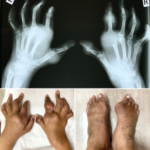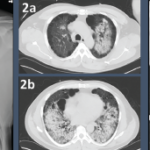Scenario: A patient with rheumatoid arthritis (RA) presents for a follow-up visit. After addressing her inflammatory arthritis symptoms, medications and laboratory results, she is asked if she has any other questions, and she begins describing her chronic low back pain, which has become worse despite physical therapy (PT). She requests stronger medications because her RA…









